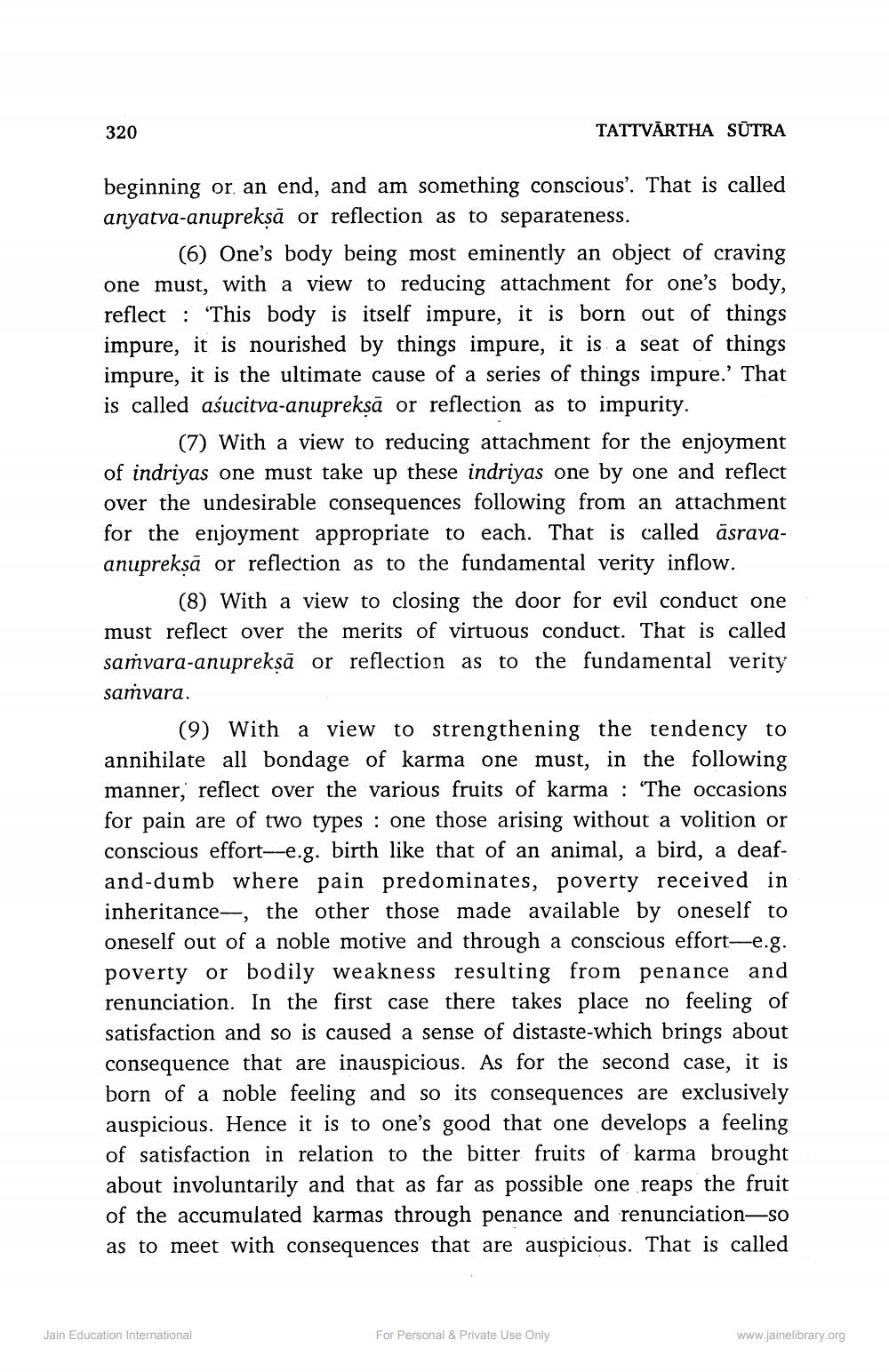________________
320
beginning or an end, and am something conscious'. That is called anyatva-anuprekṣā or reflection as to separateness.
(6) One's body being most eminently an object of craving one must, with a view to reducing attachment for one's body, reflect This body is itself impure, it is born out of things impure, it is nourished by things impure, it is a seat of things impure, it is the ultimate cause of a series of things impure.' That is called aśucitva-anuprekṣā or reflection as to impurity.
TATTVĀRTHA SŪTRA
(7) With a view to reducing attachment for the enjoyment of indriyas one must take up these indriyas one by one and reflect over the undesirable consequences following from an attachment for the enjoyment appropriate to each. That is called āsravaanuprekṣā or reflection as to the fundamental verity inflow.
(8) With a view to closing the door for evil conduct one must reflect over the merits of virtuous conduct. That is called samvara-anuprekṣā or reflection as to the fundamental verity
samvara.
(9) With a view to strengthening the tendency to annihilate all bondage of karma one must, in the following manner, reflect over the various fruits of karma: "The occasions for pain are of two types: one those arising without a volition or conscious effort-e.g. birth like that of an animal, a bird, a deafand-dumb where pain predominates, poverty received in inheritance, the other those made available by oneself to oneself out of a noble motive and through a conscious effort-e.g. poverty or bodily weakness resulting from penance and renunciation. In the first case there takes place no feeling of satisfaction and so is caused a sense of distaste-which brings about consequence that are inauspicious. As for the second case, it is born of a noble feeling and so its consequences are exclusively auspicious. Hence it is to one's good that one develops a feeling of satisfaction in relation to the bitter fruits of karma brought about involuntarily and that as far as possible one reaps the fruit of the accumulated karmas through penance and renunciation-so as to meet with consequences that are auspicious. That is called
Jain Education International
For Personal & Private Use Only
www.jainelibrary.org




